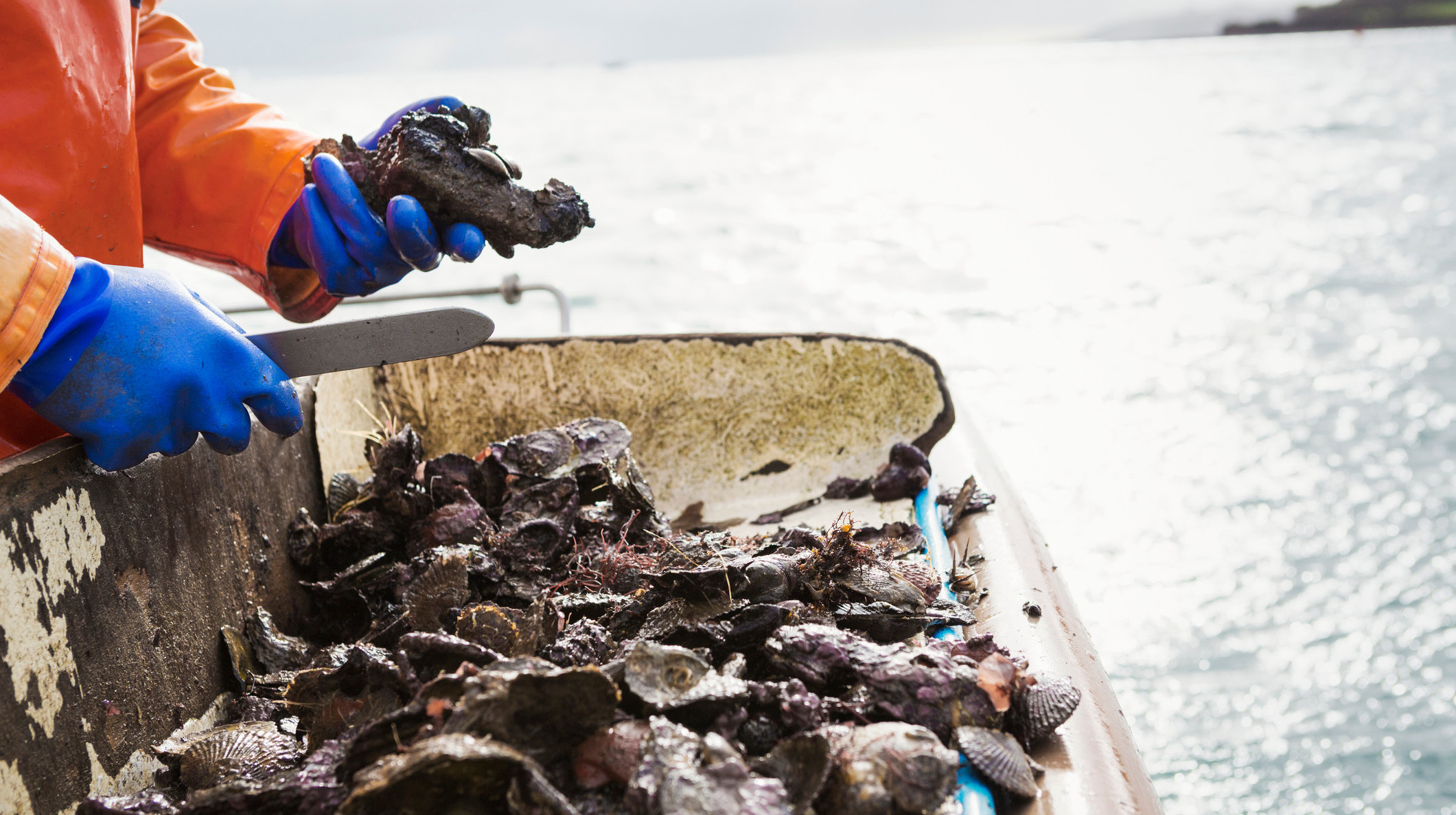"Supercharged Shellfish" Could Solve Global Vitamin Deficiency
There are over two billion people on earth who lack consistent access to nutritious foods, and this week, a team of scientists at Cambridge announced that they have developed a solution that could potentially slash that statistic: supercharged shellfish.
There are multiple reasons the scientists believe that bivalve shellfish such as oysters, mussels, and clams could help solve global vitamin deficiency. According to the University of Cambridge, "Bivalves have a higher protein content than beef, are a rich source of omega-3 fatty acids, and have some of the highest levels of key minerals of all animal foods." They're sustainable and easy to farm, and once removed from their shells, bivalves are consumed in their entirety—which means that when we eat shellfish, we're also eating everything it ate in the last few hours of its life.
In a report published this week in Frontiers in Nutrition, researchers explain that they have developed tiny, nutrient-packed microcapsules, nicknamed "vitamin bullets," that they feed to the bivalves within eight hours of the bivalves being harvested for consumption. According to the report, oysters that are given vitamin bullets before they're eaten contain roughly 100 times more vitamin A and 150 times more vitamin D than normal oysters. Eating just two of these fortified oysters would provide the recommended dietary allowance (RDAs) of these vitamins.
The scientists are already speaking with seafood manufacturers about testing out these vitamin capsules on more bivalves. In addition to being healthy, sustainable, and relatively easy to farm, so-called supercharged shellfish is remarkably affordable: the team estimates that vitamin bullets will add a mere $0.0056 to the cost of producing each oyster.
